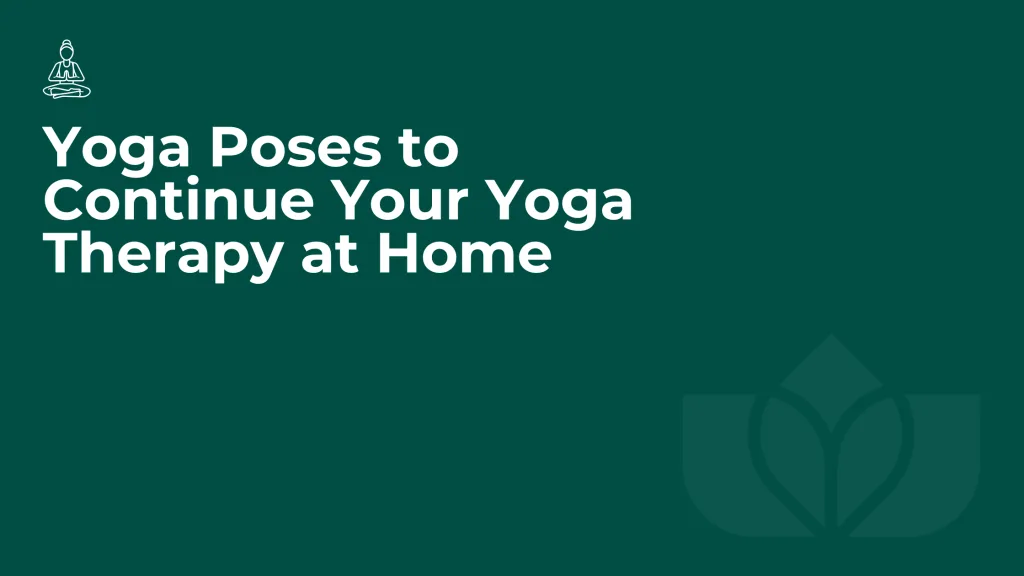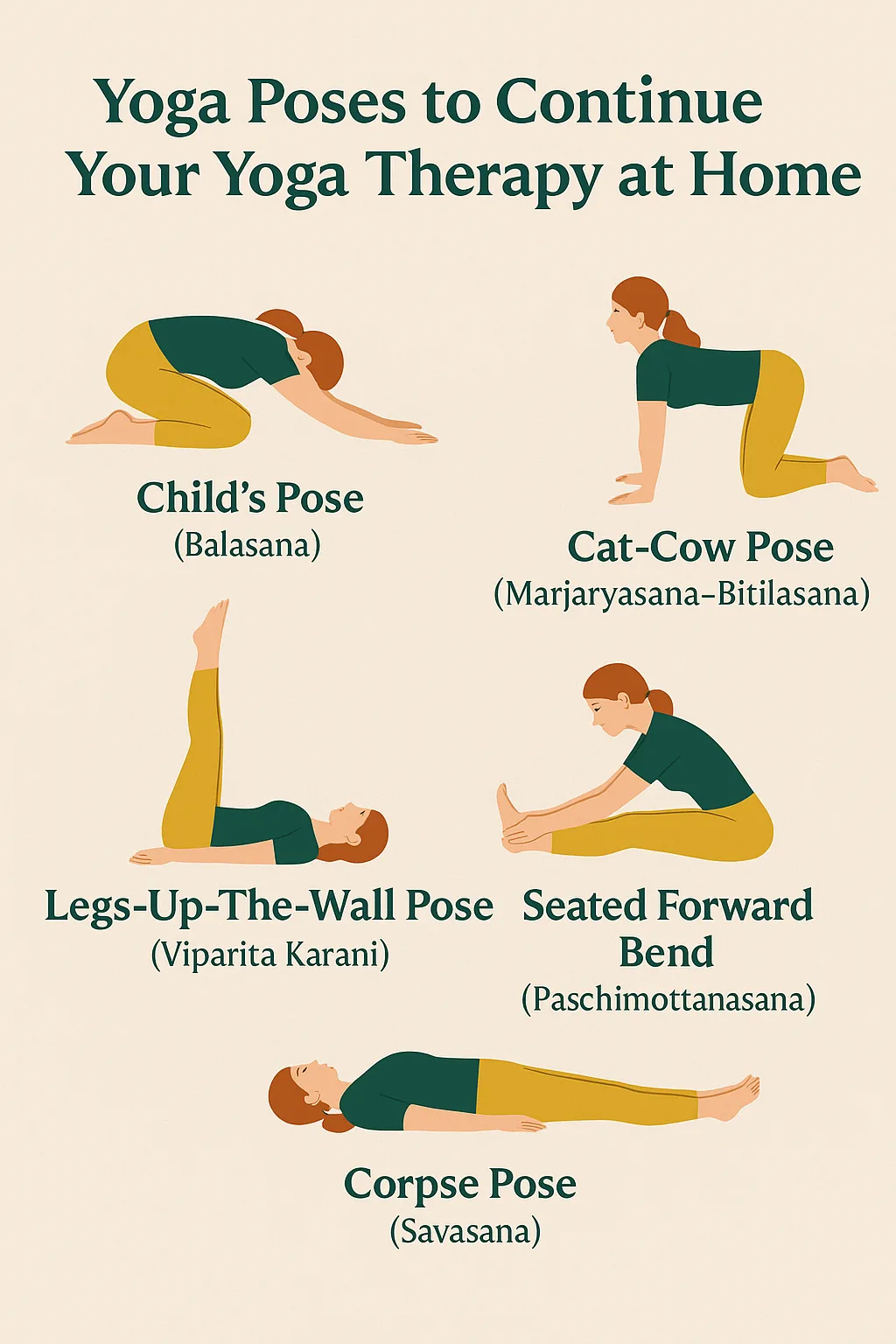- 020 3098 7007

One of the most loved therapies at TLC Rehab is yoga therapy. Every week, many of our patients discover just how powerful yoga can be for both the body and the mind. It’s calming, grounding, and gently supports your journey away from addiction. As part of your ongoing recovery, we encourage you to keep practising at home. Even ten minutes a day can help.
To make it easy, we’ve put together five accessible yoga poses you can safely practise on your own. These were chosen because they’re gentle, restorative and designed to complement your recovery after rehab.
All you need is a mat, a quiet space and your breath.

This resting pose calms the mind, stretches the spine and brings the nervous system into balance. It’s great when you feel overwhelmed or simply need to reconnect with yourself.
How to do it:
Kneel on the mat with your toes together and knees slightly apart. Sit back onto your heels and fold your torso forward, reaching your arms in front of you. Let your forehead rest on the mat. Breathe deeply and slowly.
Yoga therapy tip: Stay in this pose for at least one minute to truly feel its calming effects.
This gentle flowing movement promotes flexibility in the spine and improves the mind-body connection. It’s perfect for mornings or anytime you feel tense.
How to do it:
Start on all fours, with wrists under shoulders and knees under hips. Inhale as you drop your belly, lift your head and tilt your pelvis (cow pose). Exhale as you round your back and tuck your chin (cat pose). Repeat for several slow rounds.
Yoga therapy tip: Let the breath guide your movement – this helps calm the mind and regulate your emotions.
This passive pose supports blood flow, reduces anxiety and helps relieve tired legs. It’s ideal in the evening or before sleep.
How to do it:
Sit sideways next to a wall. Gently swing your legs up while lying on your back and rest your arms by your sides. Close your eyes and focus on your breath.
Yoga therapy tip: Stay here for 5-10 minutes and allow your body to completely relax. This pose is especially helpful when cravings or restlessness arise.
This pose stretches the hamstrings and lower back and encourages introspection. It’s a quiet, calming movement that can help you reconnect with your breath and your progress.
How to do it:
Sit with legs extended straight in front. Inhale, lift the arms, and as you exhale, fold forward from the hips. Let your hands rest on your legs or feet. Don’t worry about how far you reach – the point is to soften, not strain.
Yoga therapy tip: Bend your knees slightly if needed. Use each exhale to release tension.
A crucial part of every yoga session, this final resting pose allows your body and mind to integrate all the benefits of your practice.
How to do it:
Lie flat on your back, legs apart and arms relaxed at your sides, palms facing up. Close your eyes and let your breath become natural. Stay here for 5 to 10 minutes.
Yoga therapy tip: This is not about sleeping – it’s about resting in awareness. If your mind wanders, gently return to your breath.
Practising yoga at home keeps you grounded, helps manage stress, and supports long-term recovery. It complements the tools you learned during rehab, offering a safe, physical outlet for emotions and a structured space for reflection.
Yoga therapy is not about flexibility or perfection. It’s about reconnecting with your body, building trust in yourself, and creating daily moments of peace. Whether you practise all five poses or just one, what matters most is consistency.
Life after rehab comes with its challenges, but you’re not alone. Your mat can become a sanctuary – a reminder of how far you’ve come and where you’re heading.
If you ever feel stuck or need support, we’re still here.
Call 020 3098 7007, email info@tlcrehab.co.uk or chat with us via WhatsApp Live Chat.
TLC do not share your details to anyone.
To view our website’s cookie and privacy statement please click here
Alcohol Detox
Opiate Detox
Benzo Detox
Residential Rehabilitation
Our London clinic is open 24/7 365 days of the year.
© 2025 – Apex Wellness Solutions – All rights reserved. Web Design by Webwax